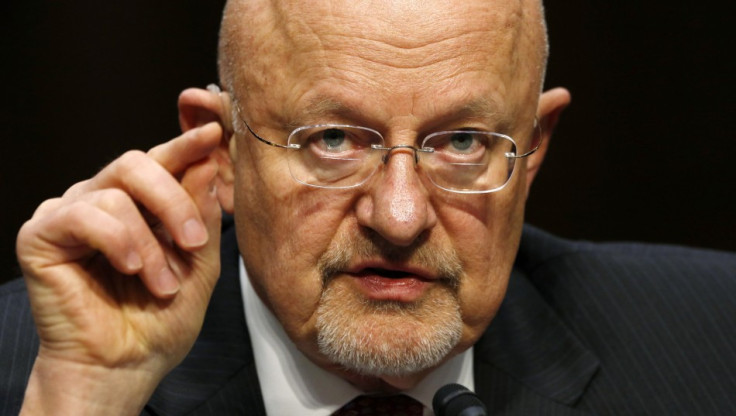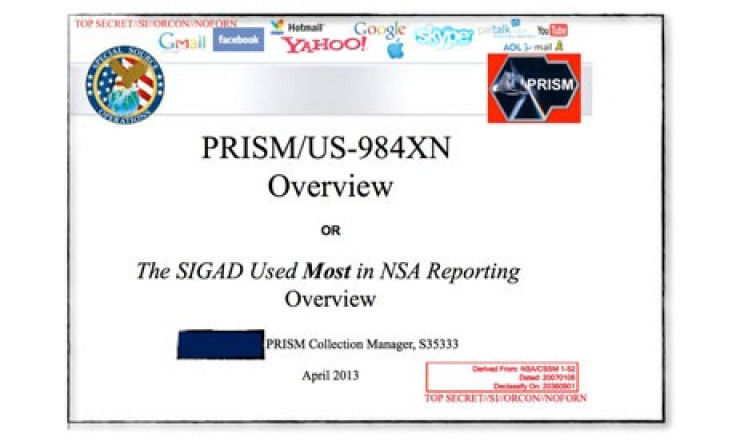Who Leaked Top Secret Prism Files - And Why?
Who leaked top secret US government data about its covert Prism program which monitors major tech companies like Google and Facebook - and why did they do it?

The revelation that the National Security Agency (NSA) has been given unfettered access to data held on the servers of Google, Facebook, Microsoft, Apple and many more high-profile tech companies as sent shock waves through the general US population and the intelligence community in particular.
The director if National Intelligence James Clapper called the leaks "reprehensible", highlighting the reports by the Guardian newspaper in London and the Washington Post on the other side of the Atlantic, claiming both reports contain "numerous inaccuracies" and putting the security of US citizens at risk - without the least bit of irony apparently.
Magnitude
A leak of this magnitude at the NSA is almost unheard of. A single leaked document or a hint at something bigger? Maybe. But a 41-page slideshow presentation dated April 2013 and intended for senior analysts in the NSA's Signals Intelligence Directorate? Never.
"Such a leak is extremely rare in the history of the NSA, which prides itself on maintaining a high level of secrecy," Glenn Greenwald wrote in his own story on the Guardian website. Greenwald has told the New York Times that the leak came from "a reader of mine" who understood Greenwald's long history of writing about government surveillance and prosecution of journalists.

A former lawyer, Greenwald is meticulous in his reporting - sometimes to the point making his writing impossible to digest - backing up all his claims with multiple sources and documentary proof.
It's in the constitution
He says he realises this revelation, along with one about the NSA monitoring all phone calls of Verizon customers in the US earlier this week will lead to intense scrutiny from the US authorities, but this is something he is fully prepared for.
"The NSA is kind of the crown jewel in government secrecy. I expect them to react even more extremely." Fellow lawyers have warned him "he should be worried," but he had decided that "what I am doing is exactly what the Constitution is about and I am not worried about it."
The value of Prism to the US intelligence community is astounding. According to the leaked slides, it is now the most prolific contributor to President Obama's daily security briefing, which cited Prism-originated data 1,477 times in 2012 and is relied upon for nearly one in seven intelligence reports produced by the NSA.
The Why?
While Greenwald simply describes his source as a "reader," the Washington Post, which also broke the story goes a little further and reveals the reason behind why the slides were released:
"First-hand experience with these systems, and horror at their capabilities, is what drove a career intelligence officer to provide PowerPoint slides about PRISM and supporting materials to The Washington Post in order to expose what he believes to be a gross intrusion on privacy."
The officer wanted to expose what he believes to be a gross intrusion on privacy telling the newspaper: "They quite literally can watch your ideas form as you type."
With the same documents being released on the same day to two different newspapers, it is clear that Greenwald's "reader" and the Washington Post's "officer" and one-in-the-same person.
And it is this person that James Clapper and the NSA will now be putting all their efforts into finding. A leak like this is not going to be taken lightly and all you have to do to understand the potential fallout from the Prism leaks is to recall the case of former NSA officer Thomas Drake who became a whistleblower in relation to Trailblazer Project at the NSA - becoming one of the few people ever charged under the Espionage Act in US history.
Heightened sensitivity
The revelations come at a time of heightened sensitivity in the US in relation to security in general and cyber-security in particular. President Obama is this weekend meeting the Chinese President Xi Jinping to try and ease growing tensions between the two countries over cyber-espionage allegations.
There is also the case of Bradley Manning who is currently in court in relation to his part in the largest intelligence leak in US history which saw huge troves of diplomatic cables released to WikiLeaks and is facing the rest of his life in military prison if found guilty of "aiding an enemy."
© Copyright IBTimes 2024. All rights reserved.






